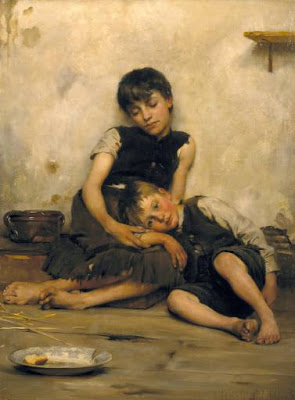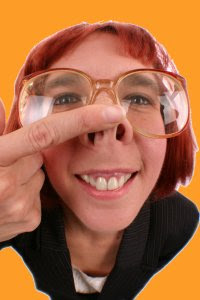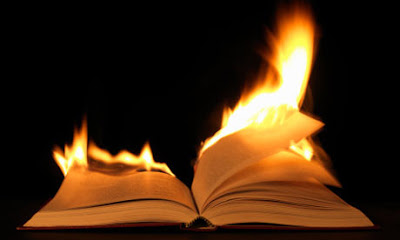Hi
M. Thank you so much for joining us this evening. Can you tell our readers something
about yourself?
I am involved with gay programming and
advocacy at the United Nations, and I have private patients as a social worker. And I founded and run a non-profit organization supporting LGBT Jews and their families in the Orthodox community. I think that being Jewish is very essential to who I am. Those are the values
of the household I grew up in. My relationship to spirituality is seen through
a Jewish light and with Jewish language.
When I think about being gay, I think about people being
lonely. I think about a young kid questioning, trying to understand, being
lost. Consequently, being gay to me took on a sense of duty, it became my communal life and communal calling. My
community is very much a queer life. Most of my friends identify as LGBTQ or
queer. I think about this as my communal life, and this has become my
contribution to Jewish community.
Ironically, I don't really think about my own romantic life when I think of my gay identity. Don't get me wrong, I want to be in love with somebody, and I
hope that person is as wonderful as can be. I hope to be part of a couple and part of a family, but the gender of the participants of that family could never define it. Based on practicality, given who I am, that person is probably going to
be a man. However, I may meet a non-gendered person and fall completely in love with
that person. Would I then be gay? Who knows! But much like my Jewish identity is inextricably tied to the destiny of the Jewish people, my gay identity ties me to my beloved LGBT community.
I have parents who are still together after
getting married at twenty and twenty-one, and I am the first of five children.
I have two sisters and two brothers. Both my parents are from orthodox rabbinic
families. I guess my family is quite a rabbinic family, with a yeshivish bent.
All of my grandparents identify more as misnagdim, Lithuanian, except for my
grandmother who grew up in Poland and was part of the Belz dynasty.
Who wore it best?
Yichus!
So who were you closest to?
As a child, I was very close with my
mother. As I started to learn mishnayos and gemorrah, though, I became very
close with my father because he used to learn with me, and then as an
adolescent, I wasn’t so close to anyone! Normal! In my twenties I became close
to my mother again, and in my late twenties closer to my father and now I am
close to both.
I am very close to all of my siblings. We
are all very close.
Turning six! I love Miss Piggy and my
mother invited my whole class to my birthday party. She bought me a huge Miss
Piggy ice cream cake. I felt, then, like my mother really saw me. She GOT me,
and I felt so proud. It was a wonderfully happy time.
What
was your coming out process like in such a frum family?
For me, when I was about three and a half,
I began identifying as someone who was really a girl and not a boy. I would
tell that to anyone who would listen to me. I would tell the shabbos guests! I
believed I would go to sleep and wake up as a girl.
I identified as a girl! In terms of me coming out as non-gender conforming, I was always able to express myself, even as a young child.
I identified as a girl! In terms of me coming out as non-gender conforming, I was always able to express myself, even as a young child.
It wasn’t until I was twenty-one that I
remember being in the car with my mother, driving to Brooklyn, and my sisters
were beginning to shidduch date, and I casually told my mother that if I happened to be
dating a boy, and that person was not invited to any of my sisters’ weddings,
then I would not come either. That’s how I came out to my family!
In terms of coming out to myself, because I was so gender non-conforming so
young, gender was always fluid to me. I didn’t see myself as a gay man for most of my childhood.
I saw myself as someone gender non-conforming. I saw my sexuality through that
lens. I also didn’t know any other gay people. It was very innocent and very
personal. In later years in college, I felt more comfortable identifying as a
gay man.
I did not come out right then, but I did
eventually. I told her my concerns about having children and what my family
would look like, and at the end of the evening, I finally vocally admitted to being a gay man, and
I began to be comfortable with that identity. It was not until I met other gay
men and saw how we were so similar, and when I learned more about the gay
community, all of that solidified my identity as a gay man. But it took a while.
Where have you been all my life?
Did you have hopes and dreams that needed to be rethought when you came out as gay, and how do they fit with your Jewish identity?
Did you have hopes and dreams that needed to be rethought when you came out as gay, and how do they fit with your Jewish identity?
My hope and dream of having a family and
having children doesn’t need to be rethought, because I still hope for that.
But what did need to change was the Jewishness of that hope and that dream. I
think for a long time the image of this dream involved a Jewish wedding, a
chassunah, as central to the beginning of my family life, and it did involve
all of the traditional, meaningful elements. I had to give that up. It’s still
hard to give that up. (There is a long silence) Even if I date and marry a man,
there will be no walking around my partner seven times, and no badeken, and so
I wouldn’t be able to have those in my wedding. Having to give that up is hard.
It was always a powerful image in my mind. Whatever I have would be different
looking wedding and the meaning of the wedding would be different.
How
did your parents have to reshape their world?
My parents had to rethink almost
everything. They had always seen me as their firstborn who would give them a
lot of nachas. They are dealing with giving up and mourning that dream, but
then re imagining a new dream and realizing that too. It’s a huge challenge. I
really feel for my parents in term of that process because there’s no clear
path, no one they know has done this before. And me being their son, I can’t help that
much. They probably need outside help. It breaks my heart.
My son and my son-in-law, the Rabbi, such a cute couple!
Do
you have a dream about some kind of formalized future plan for gay Jews?
Yes. I think the best of Jewish history tells the story of people who were valued for what made them special. We have a lot of
special and different children, and we have learned to appreciate them in the
schools and in the homes and in the larger community. That which makes them
different makes them valued. I believe that gay kids, or gender- non-conforming
kids can still have value within the community. We, meaning the Jewish
community, can learn to be a system that values differences. If you are left
handed and the majority of the kids are righties, then you will have a hard
time working in a company with all right handed equipment. It would be great if
the company gave them special jobs, suited to who they are and their special
abilities. It’s not necessary to rip out the old equipment.
What
do you think Frum Gay families could look like in your dream for the future?
I would hope that their dreams would be rooted in reality. The people who are shaping that dream are the role
models for the community today. It may be tempting to think of Frum Gay People (FGPs) adopting the dream of the classic Jewish home with children in yeshiva and a picket fence, but some of those fantasies are based on a hetero-normative
model. I think there’s something that is dishonest about that dream. It’s
uninformed. I just don’t know what works for gay Jews now. I’m looking very
hard and specifically to LGBT adults and the way that they are living their
lives and for what works for them and through those narratives, we can hopefully
construct a dream. Until then, I try to hold off on formalizing or defining the family construct for frum gay Jews. I think families
need to be based in some sense of history. As we see the gay community receive
their rights and prejudice goes away, we can begin constructing these family
units, and we can learn what we can do to avoid mistakes. Let’s hope that
process is mostly supportive and positive. Hopefully families are all in this
together, and since we love each other, we should
be in this together.
Well, today is the anniversary of the "I have a dream" speech, so it's been on my mind. I am so inspired by Martin Luther King, his
speech and the struggle for civil rights. It’s something that is so recent and
it’s a source of endless inspiration.
I have a dream too!
But in terms of people, I am inspired religiously by Rabbi Yosef Dov Soloveitchik. I often ask my friends whether they had a Rabbi who inspired them religiously; who, when they heard that person’s thoughts, they were spiritually aroused. Sadly, few of my friends have had that experience. In Rabbi Soloveitchik, I am lucky enough to have had that throughout my teenage years, listening to the thousands of tapes my grandfather owned of the Rav's shiurim in hashkafa. I was so inspired and turned on and felt connected to his messages and philosophy. I still am.
I have a dream too!
But in terms of people, I am inspired religiously by Rabbi Yosef Dov Soloveitchik. I often ask my friends whether they had a Rabbi who inspired them religiously; who, when they heard that person’s thoughts, they were spiritually aroused. Sadly, few of my friends have had that experience. In Rabbi Soloveitchik, I am lucky enough to have had that throughout my teenage years, listening to the thousands of tapes my grandfather owned of the Rav's shiurim in hashkafa. I was so inspired and turned on and felt connected to his messages and philosophy. I still am.
My grandparents inspire me. My father’s
father was very poor but he built a few businesses, and eventually, he built
communities. “If you want to make change you have to be a player”. To him, a “player”
is someone who is involved and identified with that
involvement. A player has a voice and a vested interest. He takes responsibility for his surroundings and community. He is not just someone who lives in the community. He is someone who
shapes the community. My
grandfather’s way was through philanthropy, and when he came to a community, he
would invest in it and immediately become a “player.” He was the president of a
school and shul and one of the builders of the Orthodox community. Someone who
people really listened to.
Shaping the world from a young age.
My other grandfather, my mother's father, was a renaissance man. He was a Rosh Yeshiva, and close to many of the Gedolim, but he also went to Princeton and the opera, and he enjoyed the great novels and listened to Barbra Streisand!
Shaping the world from a young age.
My other grandfather, my mother's father, was a renaissance man. He was a Rosh Yeshiva, and close to many of the Gedolim, but he also went to Princeton and the opera, and he enjoyed the great novels and listened to Barbra Streisand!
All of his boys ended up learning in Lakewood. He straddled many different
communities and he made it seem so easy and beautiful. He did it so gracefully.
It has always been a struggle for me to balance those things, and yet he made
it into a dance. A thing of beauty.
I am afraid of not knowing my
grandchildren. The biological timeline doesn’t look good for me in terms of really having a relationship with my grandchildren. Given the influence that my grandparents had on me, it's terrifying and sad to think that I won't be able to have that with my own grandchildren. Let's face it, if
people still live for the amount of time they live for currently, it doesn’t
leave me a lot of time to connect with my grandchildren. I’m thirty-four years
old. I think that if I have children in five years, then by the time that child is thirty, I will be almost seventy. And that’s when my child would be thinking of having
children. The math just doesn’t look good. That makes me sad.
I love performing. I love musical theater,
telling over a story with words and song. And I love my friends; I love
experiencing good things with my friends, good music, the beach, good food. And
I love the idea that I may, in some way, be able to make a difference.
A really happy, exulted time is when the Rabbinical
Council of America publicly put out a statement taking down their endorsement
of Jonah (* a type of damaging reparative therapy). It was a personal goal of mine to change the policy of the RCA. I had worked on that for almost four years. I wanted to get the
endorsement off so badly, and four years later, it happened! I remember the
night when I got a text, and I saw the RCA statement. I was so happy and proud
of my community, the RCA and myself. I was so proud of what we did. I felt that
I made a difference.
I saw a potential world that could happen sooner. I
always knew there could be a world where LGBT people could live and have a
place, and I saw that we didn’t have to wait until so much more damage could
happen. And I knew it from when I was twenty. I saw the possibility, and it
helped with making it happen sooner. The world always bends towards tolerance.
Whatever amount of suffering was alleviated because of me, because of what I’ve
been able to create, that is my greatest accomplishment. I am confident and proud that this
safe space for LGBT people in the Orthodox world happened sooner, in part because of my efforts.
I think that too often people are satisfied
with a sense that it will all change, eventually!
There are so many people who are not ok. Who are oppressed. You need people to demand to be heard, to create a pressure to change, to create momentum, and I was part of that. I helped with the energy to make that happen. I made support resources for LBGT youth in the Orthodox world, and now Jewish Queer Youth ( JQY) is almost bar mitzvah. In those thirteen years, so much has happened in such a short time in terms of resources: the support groups, the training for mental health professionals, the phone hot lines (551-JQY-HOPE (551-579-4673)), the youth groups, the orthodox high school groups, the creation of Temicha , a group for Orthodox parents of LGBT kids, the Jewish holiday parties with over three hundred people, the Purim party with over four hundred people, and it’s all kosher and beautiful! I helped found and organize the Eshel Shabbatons ( ESHEL) where people are meeting each other, finding other queer Jews! Today, we are an active and dynamic LGBT community. It’s bubbling and boiling! It’s unbelievable. It's exciting! If that’s not an accomplishment, then I don’t know what is!
There are so many people who are not ok. Who are oppressed. You need people to demand to be heard, to create a pressure to change, to create momentum, and I was part of that. I helped with the energy to make that happen. I made support resources for LBGT youth in the Orthodox world, and now Jewish Queer Youth ( JQY) is almost bar mitzvah. In those thirteen years, so much has happened in such a short time in terms of resources: the support groups, the training for mental health professionals, the phone hot lines (551-JQY-HOPE (551-579-4673)), the youth groups, the orthodox high school groups, the creation of Temicha , a group for Orthodox parents of LGBT kids, the Jewish holiday parties with over three hundred people, the Purim party with over four hundred people, and it’s all kosher and beautiful! I helped found and organize the Eshel Shabbatons ( ESHEL) where people are meeting each other, finding other queer Jews! Today, we are an active and dynamic LGBT community. It’s bubbling and boiling! It’s unbelievable. It's exciting! If that’s not an accomplishment, then I don’t know what is!
In terms of the changes within the
rabbinate, there have been some real changes. It’s not as satisfying, though, because
straight rabbis are not yet using words of acceptance and self esteem. However, at least
their tone has changed. Approaching them is safer, reparative therapy has lost
acceptance, and these are all positives. These are all big accomplishments. These
are things to be proud of.
I’d want him to say that M was a player,
but in the sense my grandfather meant, that I tried to make the world a better
place for people who desperately needed it. That I was able to express emotions
in a way completely unique to me, that I made people’s lives sweeter or better
because of who I am, whether through words or song or performance. That I was a
person of passion. That I was rooted in the rational, but I respected the
passions that underlie life, whether they are explainable or not, and I found
them holy and cultivated them That I respected gedolim. That I was a force to
be reckoned with. For good! That I filled a niche. That I did something that
was needed and that only I could do. I didn’t let the status quo stop me. If I
saw something wrong, and thought it could be changed, that I created the pressure
for change. I didn’t go along with the pack and instead, my will was enough to
create a vision for a new way. And maybe, maybe, maybe, that I was a wonderful
father, a wonderful parent, and that I could take all the love and specialness
from my parents and grandparents, and put it forward to create my own family. It hasn’t happened
yet, but maybe.
Um. Lets see. Ha ha. I think it would be a
complicated request, but I’d try to …I would ask them to look in at their own
community and see who has the least power and who has the smallest voices, and then
ask how can we work to be the voices and the advocates of the powerless and the
non-privileged, however threatening that may be. Structure and institutions can be threatened by the damage that victims may cause. While I understand the fear of what you worked on crumbling, what we work on isn't worth anything if it causes harm, even to one person. We cannot hurt the many on the backs of hurting some. We must empower the victims, especially those we are most threatened by.
Unfortunately, I see the opposite in orthodox institutions. We too often relate to the abuser and are threatened by the abused. This is an endemic problem in Orthodoxy and must be addressed. I think we can do better than accusing the
weakest and the least powerful. It’s not Jewish. It’s not the way we need to
behave as ethical Jews. We need to somehow know how to help those who have no
power, and those who are suffering in the communities we build.
Honestly, those who are in power don’t need as much help. Can we re-prioritize from helping those with privilege? Let’s start talking about those who have been harmed, those who are telling us they are hurting. Maybe they don’t even have a voice: Women, LGBT folks, abused children, people with intellectual or mental health challenges, any of those people. Hear their protests, admit our possible role in their suffering, and let the infrastructure help the powerless, rather than protecting the privileged.
Honestly, those who are in power don’t need as much help. Can we re-prioritize from helping those with privilege? Let’s start talking about those who have been harmed, those who are telling us they are hurting. Maybe they don’t even have a voice: Women, LGBT folks, abused children, people with intellectual or mental health challenges, any of those people. Hear their protests, admit our possible role in their suffering, and let the infrastructure help the powerless, rather than protecting the privileged.










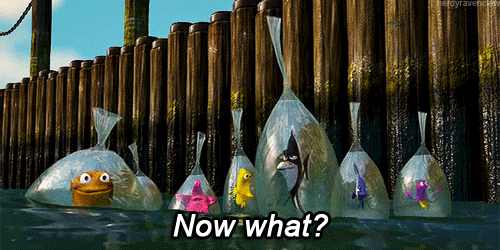


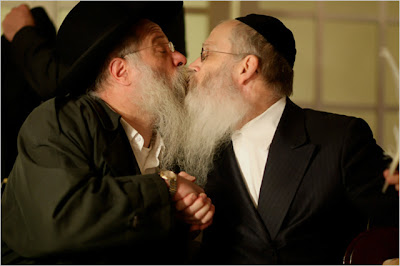
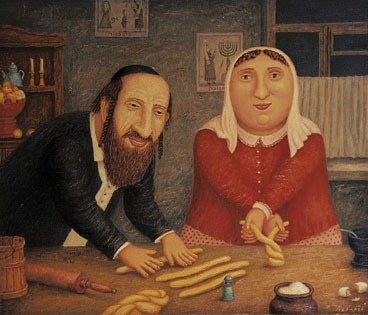

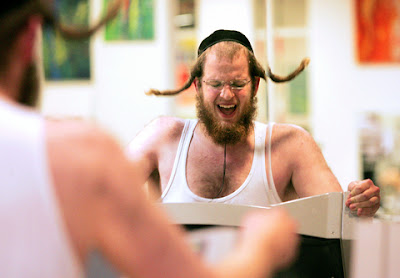



.jpg)















